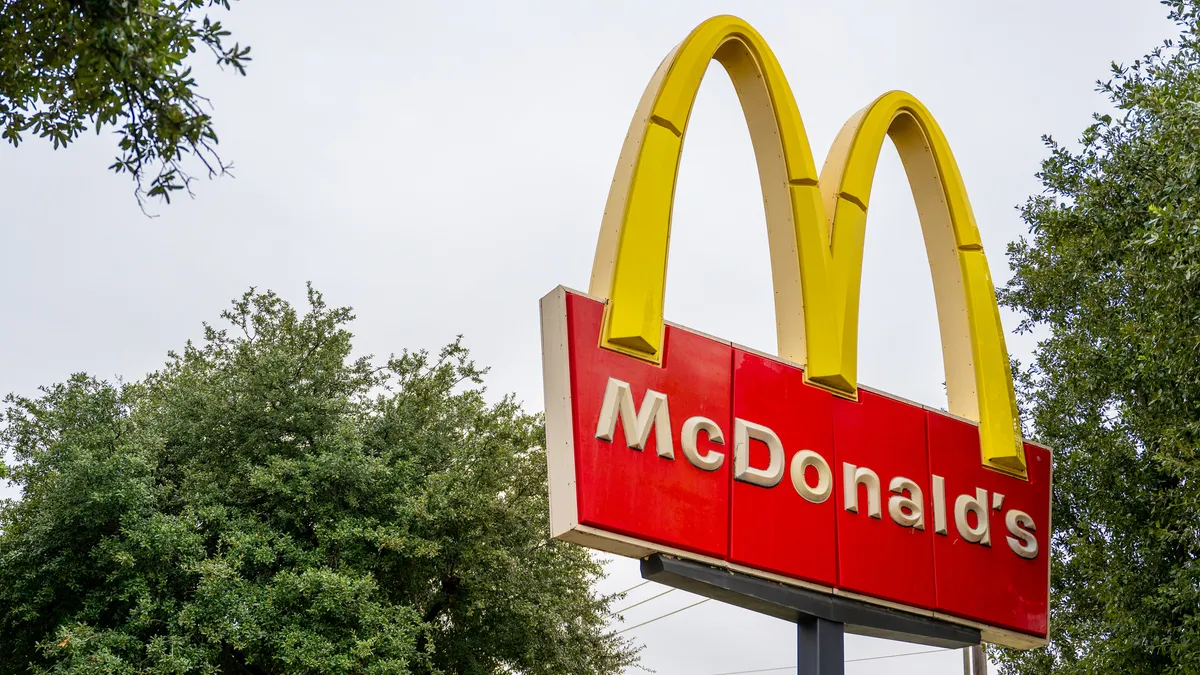McDonald’s is facing questions over food safety after the Center for Disease Control on Tuesday tied an E. coli outbreak to Quarter Pounders, prompting the fast food giant to stop serving the burgers in a fifth of its restaurants.
According to the CDC, 49 people across 10 states became sick, and most of the affected consumers were from Colorado or Nebraska. The CDC said everyone they interviewed mentioned eating at McDonald's before they felt ill, with most mentioning Quarter Pounders. Ten people were hospitalized and one individual died.
The chain estimates that it served roughly 1 million Quarter Pounders from Sept. 27 through Oct. 11, the time frame in question, a company spokesperson said during a Wednesday press briefing.
While the CDC didn’t specify an ingredient tied to the illness, it narrowed down its focus to fresh slivered onions and fresh beef patties. A company spokesperson estimated that as of Wednesday the chain was not serving the Quarter Pounder in roughly 20% of its restaurants.
McDonald's is focusing its investigation on the slivered onions used to make the toppings for its Quarter Pounders. The onions were sourced from a single supplier that services three distribution centers, Cesar Piña, McDonald’s chief supply chain officer for North America, said in a statement.
The onions are served raw, a McDonald's spokesperson said. If confirmed to be the source of the outbreak, it would be the first time onions have been found to be a carrier of the strain of E. Coli in question.
Piña added that all local restaurants removed that ingredient, and the chain has paused distributions of this item to the impacted areas.
McDonald’s is working with its suppliers to replenish its Quarter Pounders in the near future with timing depending on the local market, Piña said, adding that all other beef products, including its Cheeseburger, Hamburger, Big Mac, McDouble and the Double Cheeseburger are not impacted and remain available.
Following news of the outbreak, McDonald’s faced investor criticism as its stock price slid nearly 7% during the opening bell Wednesday, marking its worst day since March 12, 2020, according to CNN.
Initial news of the outbreak sparked fears among investors, who compared this incident to Chipotle’s E. coli and norovirus outbreaks, which impacted several locations over three years and led to $25 million in fines in 2020.
BTIG analyst Peter Saleh said in a report emailed to Restaurant Dive that it is premature to compare this outbreak to Chipotle’s issues.
“That incident was driven by repeated outbreaks across the country and continuous news coverage, and other quick-service chains have had localized E. coli outbreaks in recent years with almost no discernible sales impact,” Saleh said, adding that the next few days will be critical as an ongoing investigation could reveal more illnesses.
The biggest risk to McDonald’s sales is more likely the heightened media attention, which could “damper consumer traffic, if maintained for an extended time,” Saleh said.
“Assuming this is contained and out of the news in the next week, we would expect the sales impact to be very short-lived, as we have seen from similar outbreaks in the recent past,” Saleh said.
McDonald’s may have to shift its marketing strategy to focus on quality and food safety, and away from value, Saleh suggested.
The chain has been centered on creating a national value platform since early this year after executives found McDonald’s was falling behind the rest of the fast food industry in terms of its value. During the summer, it launched its $5 Value Meal, extending it into fall, following improvements to traffic.
The company could also pull back advertising support of its Chicken Big Mac and McRib limited time offers since those promotions might not gain much traction with media attention focused on the E. coli outbreak. McDonald's has been combating negative traffic for several quarters and in Q2 posted its first negative U.S. comparable sales since 2020.
“McDonald’s traffic was anemic before this incident, so any extended negative publicity could only make it more difficult to reignite sales in this environment,” Saleh said.












